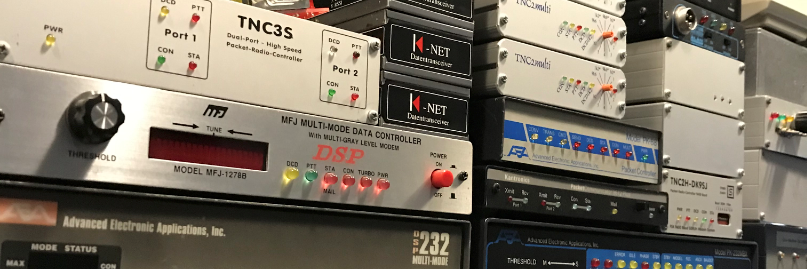
Extension to the protocol. Compressed forward FBB.
The protocol utilized for the transfer of ascii files compressed is an
extension to the existing protocol. The compressed forward is validated by
the presence of the letter B in the SID [FBB-5.12-BFHM$]. The transfer of
compressed files can only take place under FBB protocol. The presence of the
letter B in the SID without the F letter will remain without effect.
The only difference as regard to the standard protocol is the submit line.
It can specify the type of data contained in the compressed message. FA means
that the transfer will be an ascii compressed message. FB means that the
message will be a binary compressed file (this last possibility is not yet
implemented in the version 5.12).
The submission of an ascii message will be in the form :
FA P FC1CDC F6ABJ F6AXV 24754_F6FBB 345
The submission of a binary file will be in the form :
FB P FC1CDC F6ABJ F6AXV 24754_F6FBB 345
The transferred data are of a specific format. The transfer will be done in
binary mode. This last one is derived of the YAPP protocol which is very
reliable. All transfer is made of a header, a block of data, an end of
message and a checksum. Each transfer is equivalent to the transfer of one
message of the standard protocol and shall not be followed by a control Z,
the end of file specifier is defined in another way.
Format of header for an ascii compressed message (submission FA) :
<SOH> 1 byte = 01 hex
Length of the header 1 byte = Length from the title,
including the two <NUL> characters.
Title of the message 1 to 80 bytes
<NUL> 1 byte = 00 hex
Offset 1 to 6 bytes
<NUL> 1 byte = 00 hex
Format of header for a binary compressed file (submission FB) :
<SOH> 1 byte = 01 hex
Length of the header 1 byte = Length from the filename,
including the two <NUL> characters.
Name of the file 1 to 80 bytes
<NUL> 1 byte = 00 hex
Offset 1 to 6 bytes
<NUL> 1 byte = 00 hex
As to follow the french regulation, the title of the message or the file
name are transmitted in ascii, not compressed.
The offset is also transmitted in ascii and specifies the offset at which
the data should be inserted in the file (in case of a fragmented file). In
the version 5.12, this parameter is not utilized and is always equal to zero.
A data block contains from one to 256 bytes. It begins by two bytes which
specify the format.
Data block format :
<STX> 1 byte = 02 hex
Number of data 1 byte = 00 to ff hex. (00 if length = 256 bytes).
Data bytes 1 to 256 bytes
The last data block is followed by the end of file specifier and the
checksum.
End of file specifier format :
<EOT> 1 byte = 04 hex
Checksum 1 byte = 00 a ff hex
The checksum is equal to the sum of all the data bytes of the transmitted
file, modulo 256 (8 bits) and then two's complemented.
The checking of the checksum is very simple :
The sum of the data from the file and the checksum received modulo 256
anded with FF) shall be equal to zero.
In case of a checksum error, the message or the file is not taken to account
and the system issues a disconnect request after having sent the comment :
*** Checksum error
Extension to the protocol. XFWD compressed forward.
X forwarding Protocol is implemented.
XForwarding now supports re-routing and swapping.
Binary forwarding via telephone modem (FBB or XFWD)
Related

